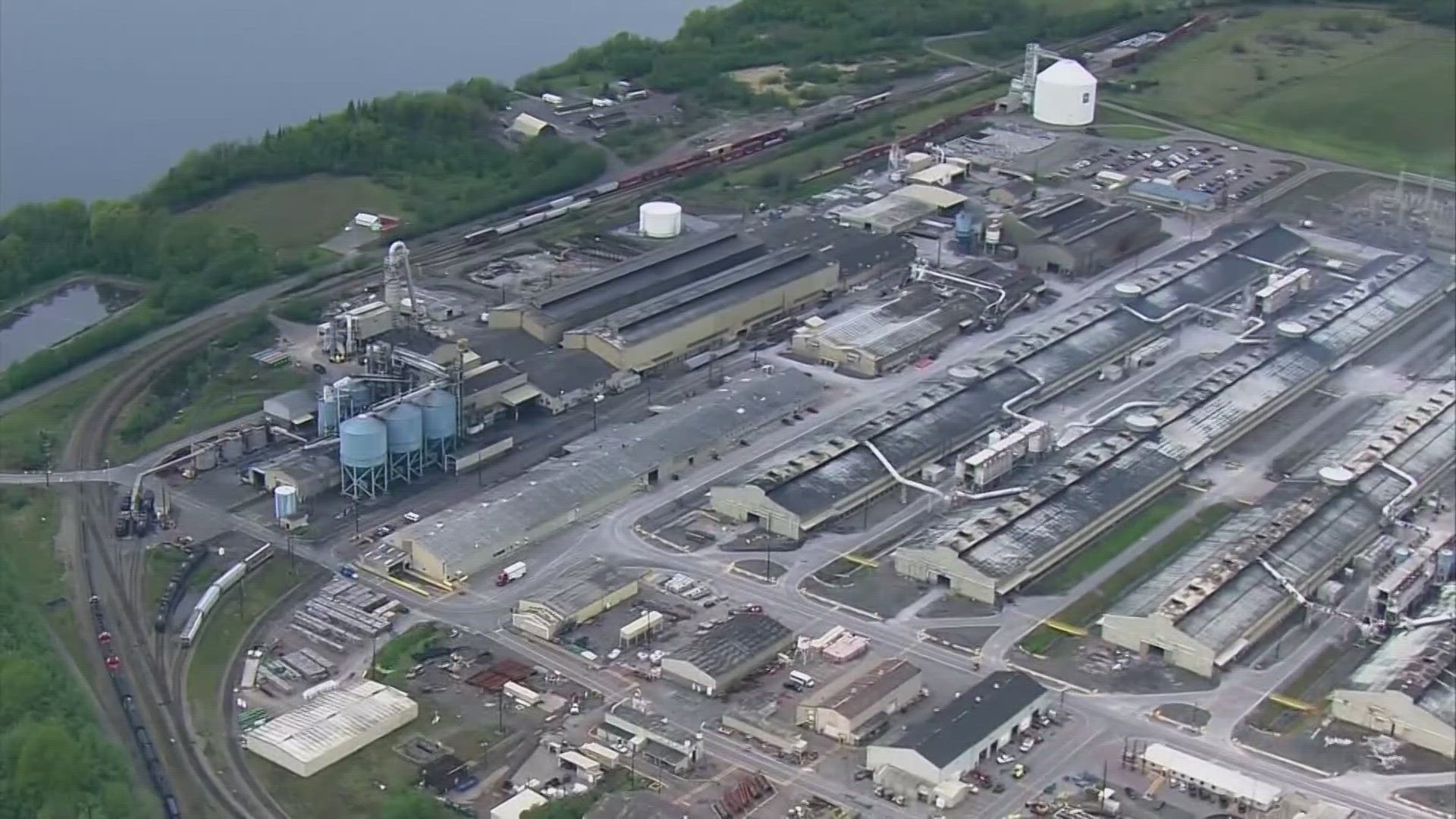FERNDALE, Wash. — Ferndale's Alcoa Intalco smelter will close after sitting idle since 2020, the company announced Thursday.
The closure, according to Alcoa Corporation, will allow the company to begin the process of preparing the site for "economic development opportunities."
“The Intalco smelter site operated for nearly 55 years, and we’ve spent significant time evaluating options for the asset, including a potential sale,” said Alcoa President and CEO Roy Harvey. “Our analysis, however, indicates that the facility cannot be competitive for the long-term.
“The site is an important part of our history, and we are encouraged by the prospects for potential economic development via another entity that will own and control land at the site,” Harvey said. “We will continue to engage with our stakeholders, including community members and government officials, as we make this transition.”
The smelter provided about 700 family-wage jobs and becoming part of the fabric of the working class town. There are now 19 employees, some who will remain to assist with closing the facility.
Support services are being provided to assist those displaced by the closure, according to Alcoa.
In 2020, Alcoa announced it was closing the plant, but left the door cracked for it to reopen.
A year later, two companies came forward with interest in starting new operations there, but both opportunities fell through.
With word the smelter could be demolished, the International Association of Machinists and Aerospace Workers sent a letter to Alcoa urging it keep the facility standing - citing "real progress" in finding a new smelter operator.
However, Alcoa said in a press release the smelter lacks access "to competitively priced power and would have required significant capital expenditures to restart."
In an agreement, AltaGas has acquired the rights to develop and own about 1,600 acres of the site, according to Alcoa.
In a prepared statement, Randy Toone, president midstream at AltaGas, said the company is "exploring potential development which would align with Washington state and Whatcom County's climate ambitions and provide long-term, sustainable benefits to the community and the local economy."

